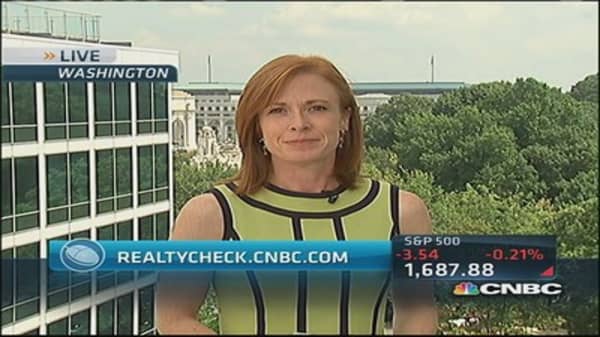Four companies lost a combined $20 billion—and they were the survivors.
The private mortgage insurance industry was leveled by the housing crash, but those that didn't go under are finally digging their way out, reaching profitability for the first time in six years, while new entries are making a strong start. Private mortgage insurance is required for borrowers taking out low down-payment loans.
(Read more: Mortgage rate spike finally hits housing market)
The comeback is being fueled by lower mortgage delinquencies and growing business, especially as the Federal Housing Administration begins to pull back. The FHA, which during the housing boom backed just 3 percent of new loans, took on 80 percent of the market during the crash, leaving private insurers with little new business. Now the FHA has raised its premiums, making a concerted effort to bring private capital back into the market.





